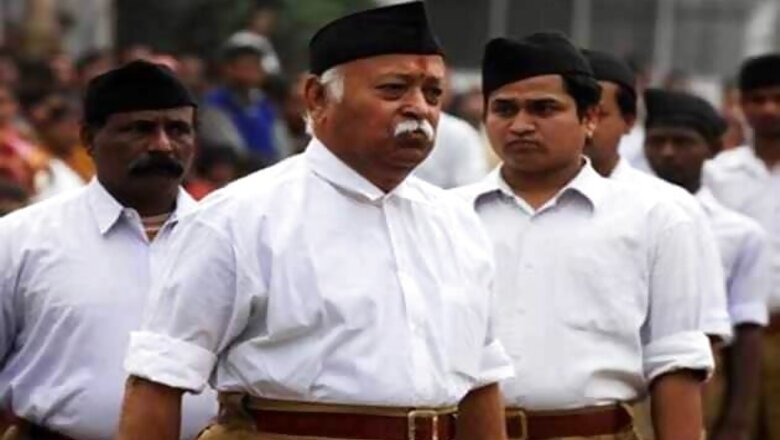
views
New Delhi: Rashtriya Swayamsevak Sangh mouthpiece 'Panchjanya' has alleged that Jawaharlal University JNU is home to "a huge anti-national block which has the aim of disintegrating India".
Claiming that pro-Naxal students' unions of JNU had openly celebrated the killing of 75 CRPF personnel in an ambush at Dantewada in 2010, the RSS organ, in its cover article, charged "JNU routinely hosts anti-national activities".
"In 2010 when Naxals in Dantewada, Chhattisgarh, killed 75 paramilitary personnel, pro-Naxal students' unions of the University celebrated openly and hailed the act. And all this happened under the nose of the JNU administration."
Another article in it alleged "JNU is one such institute where nationalism is considered an offence. Presenting Indian culture in a distorted way is common. The removal of Army from Kashmir is supported here. They advocate various other anti-national activities here".
Accusing JNU of providing "legitimacy to anti-India forces", the RSS organ has said, "Jawahar Lal Nehru promoted higher educational and research institutions as factories of socialist ideology which could provide the intellectual input for his and later Indira Gandhi's social and economic agenda."
The author of the article, while claiming that he studied in JNU, alleged, "I often heard JNU professors discuss means and measures to undermine national unity and culture at events organised by anti-national organizations…I then realized that JNU is home to a large chunk of anti-national groupings which have the singular aim of disintegrating India."
The RSS organ says JNU's tendency of relying on the state for resources (JNU is a central university funded by the government) "is nothing but capitalism masquerading as socialism and even Maoism."
"These tendencies are inspired by two things - bitterness for Hindus and an urge to break India. These things became possible due to two historical reasons. The first was the desire of Nehru and his successors to impose state-run model of economy on India and two, Nehru's proximity to the Soviet block.
"But when the Soviety block disintegrated, a new political thought emerged in institutions like JNU which started changing their political slogan from class struggle to caste struggle," the article says.

















Comments
0 comment